4 takeaways from our first taste of Game 2 action
Mavs-Clippers is officially a series
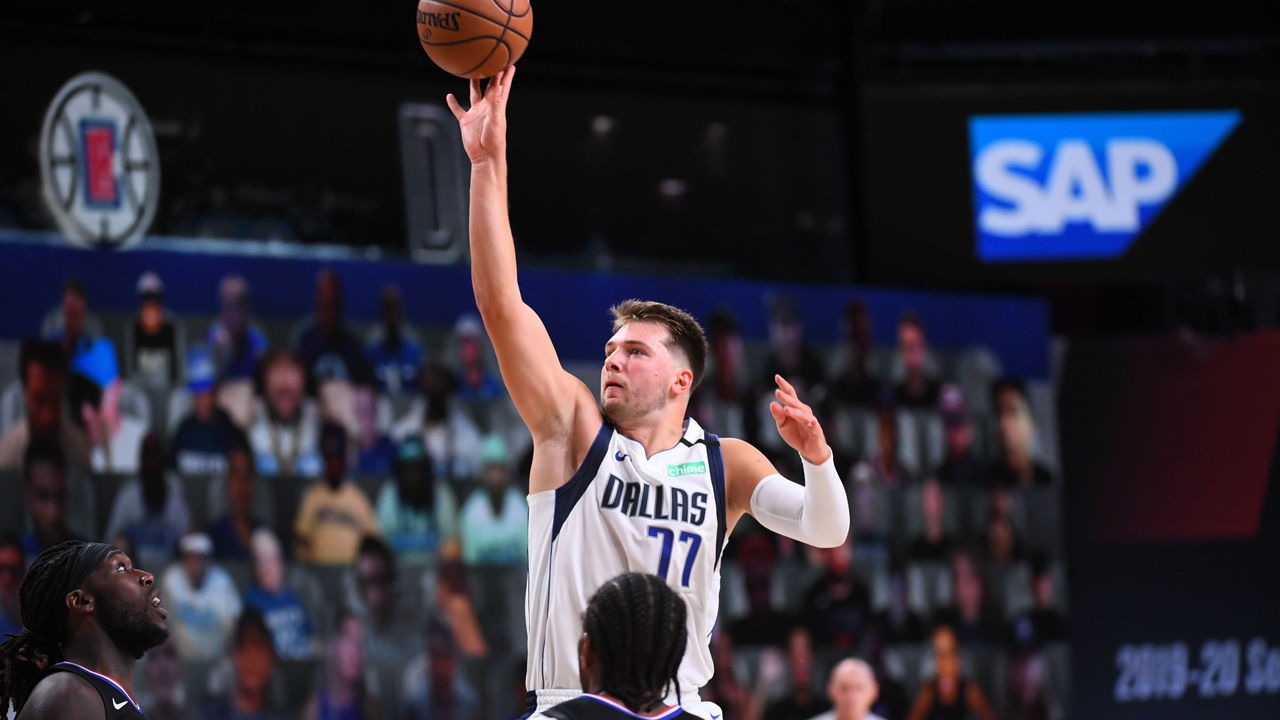
It's important not to overreact to series openers or the first upset of a series, but it's hard to come away from the first two games of Clippers-Mavericks without thinking this is going to be a much longer series than most predicted.
For one, the fact this Western Conference quarterfinal is tied is no fluke. After a Game 1 saw the Mavs take the Clippers down to the wire despite digging a 16-point hole in the first quarter and losing Kristaps Porzingis to a soft ejection in the second half, Dallas recorded a wire-to-wire victory in Game 2, and have now led the series for nearly 66 (65:48) of the 96 minutes played.
Secondly, that wire-to-wire Game 2 win came despite Luka Doncic battling foul trouble that limited him to just 28 minutes. Sure, Doncic was his usually prolific self in that time, pouring in 28 points, eight rebounds, and seven assists (while only turning the ball over once), but the Mavs were a plus-two in the 20 minutes Doncic spent on the bench Wednesday night.
The most important of those minutes came early in the fourth quarter, as Doncic's fifth foul sent him to the bench with Dallas up 12, 11:37 still remaining in the game, and both Kawhi Leonard and Paul George on the court for the Clippers. When Doncic returned to the court more than seven minutes later, the Mavs were up 13.
That's an indictment of the Clippers' performance on an awful night for George, especially, but it's also an indication of how sharp the Mavs were without Doncic.
Nothing summed up the Mavs' Game 2 synergy or depth quite like this fourth-quarter sequence, which included a patient draw from Seth Curry, a smart baseline cut and pass from Delon Wright, and good recognition from Porzingis:
Clippers in their zone here, doing a good job of communicating and matching up. Great backcut from Wright and quick dump to Porzingis for the dunk. pic.twitter.com/gY64srTiEU
— Steve Jones Jr. (@stevejones20) August 20, 2020
The Mavs are led by an MVP-caliber superstar who looks ready to embrace the playoff spotlight. They're deep, well-coached, and boast the most efficient offense of all time. They've been the better team through two games. Not to mention, the Clippers were without Patrick Beverley in Game 2 due to a calf strain, and no one seems to be sure about his status for Game 3 and beyond right now.
All signs point to a long, competitive series.
The Sixers are uninspiring
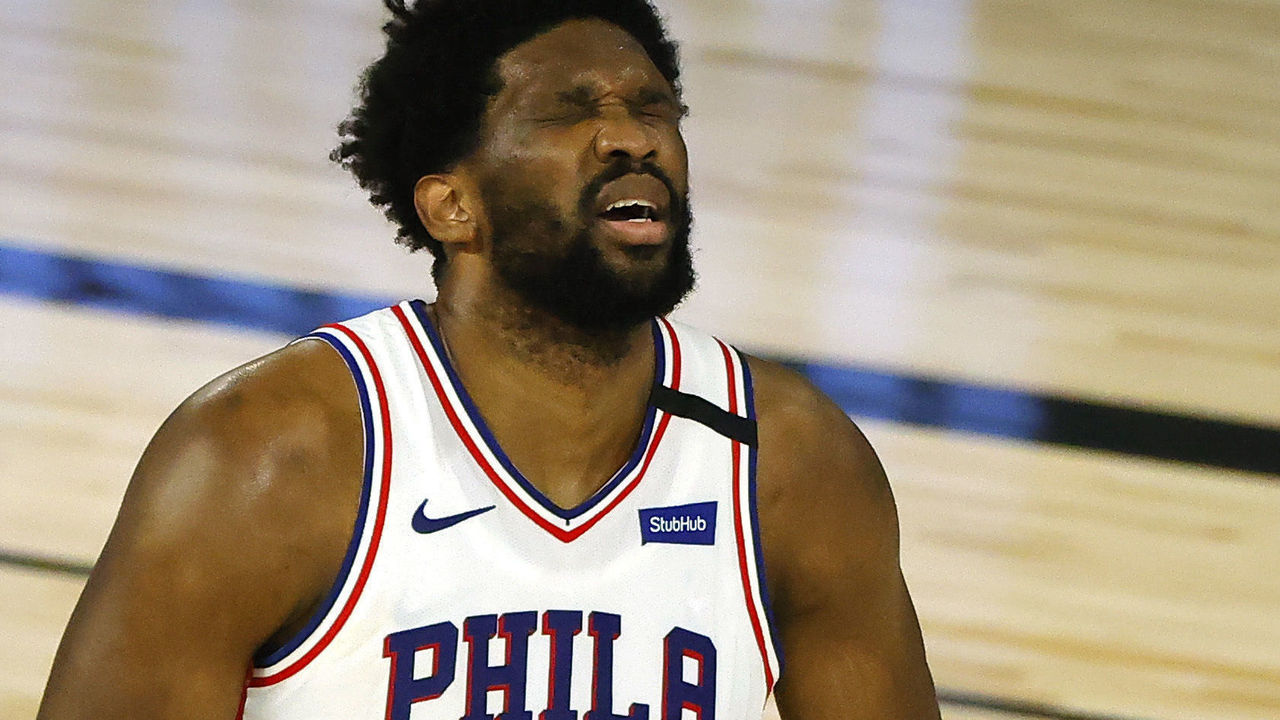
Philadelphia's Game 2 lineup change made sense. By replacing Al Horford in the starting five with Matisse Thybulle, the Ben Simmons-less 76ers opened the game with more space and shooting around Joel Embiid on the offensive end, and with an additional wing defender to throw at Jayson Tatum and the Celtics' bevy of pull-up creators.
Embiid dominated early as the Sixers spaced the floor around him and Philly jumped out to a 14-point lead. Unfortunately, as has become the norm with these Sixers, they imploded at the first sign of resistance or adversity.
Tatum caught fire, Philly struggled to even get the ball to Embiid in the post - again - and Boston quickly erased the Sixers' early lead. Fair enough. Basketball's a game of runs. However, Philly responded to that first Celtics run by completely losing the plot.
Forget, for a second, the various offensive issues we've already detailed about with this roster, or the lack of depth Philly employs right now (though it should be noted Boston's also without Gordon Hayward). How does a team with so much defensive ability at its disposal allow Kemba Walker to casually step into as many open jumpers as the Celtics guard walked into during the second-quarter run that demoralized the fragile Sixers?
Over a span of about 4:08 late in the second quarter, Walker scored 11 points to give Boston a double-digit lead, and yet this was how Brett Brown's team guarded the four-time All-Star on the last of those second-quarter pick-and-rolls:
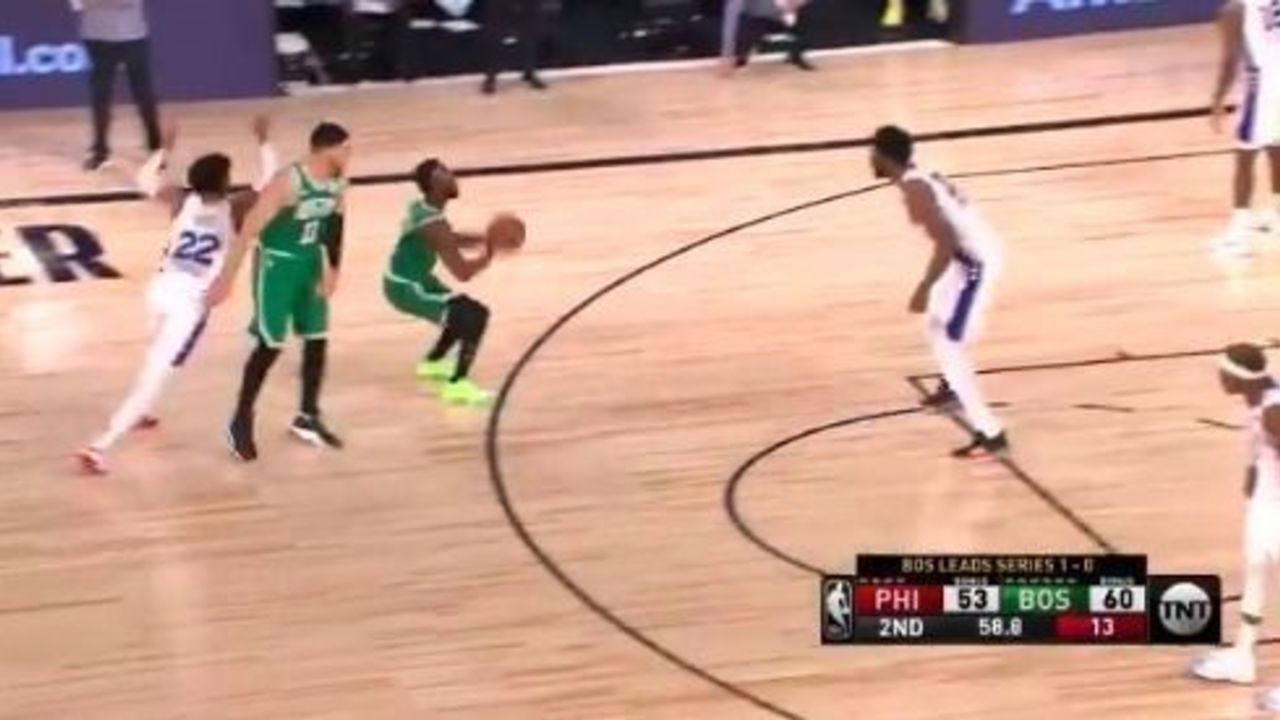
The Celtics are the better team, and Philly was always going to be facing an uphill battle in this series, even with Embiid's obvious advantage inside. But the Sixers are still a talented team, and even a talent disadvantage is no excuse for this kind of piss-poor execution. The only thing more embarrassing was how quickly that piss-poor execution was followed by a defeatist effort and awful body language in a listless second half.
The Sixers still have at least two games left in their season. There will be plenty of time to write this team's obituary in the coming weeks, but it's already clear some sort of culture reset is needed for Philly, where everyone expected one of the league's most obvious contenders to reside this season.
Nets had their chance, blew it
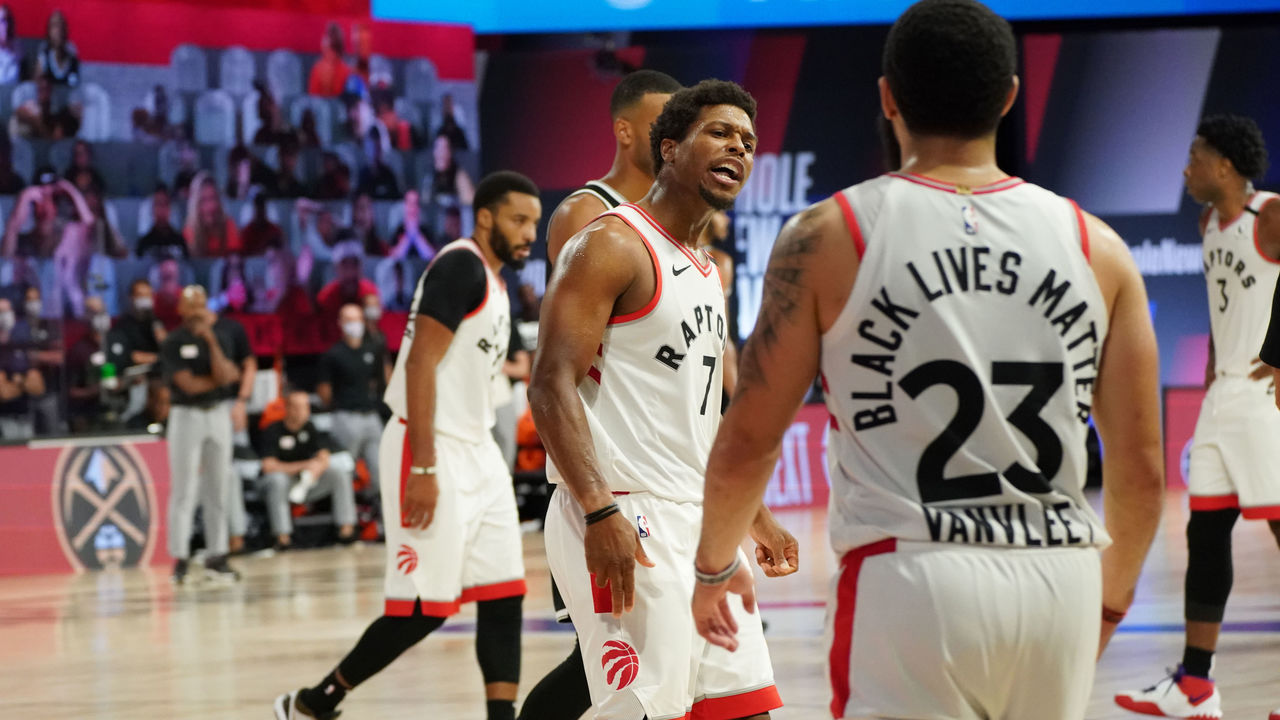
Jacque Vaughn and what's left of the battered Nets deserve credit for their play in the bubble thus far, the resiliency they showed in Game 1 against Toronto, and the adjustments they made against the defending champions in Game 2.
After Fred VanVleet torched Brooklyn on Monday, the Nets countered Wednesday by switching screens involving VanVleet. This left the long but mobile Jarrett Allen defending VanVleet on the perimeter, while a Nets guard - often Caris LeVert - pestered one of Marc Gasol or Serge Ibaka. VanVleet's offensive package has grown by leaps and bounds, but he's still an undersized guard who can be bothered by length. Gasol, meanwhile, is not the offensive force he once was, so it's not like these switches left Toronto with a massive advantage.
This third-quarter sequence provides a great example, as you can see how Allen's length on VanVleet and LeVert's aggressiveness on Gasol disrupted the Raptors' offense:
The Nets were prepared, executed their game plan, and played as close to a complete 48 minutes as you can reasonably expect from them. The Raptors, on the other hand, were far from their best, shooting 9-of-35 from deep, missing free throws, and playing from behind almost all day. And yet, Toronto escaped with a 104-99 victory, with VanVleet still finding ways to dominate down the stretch.
That has to be soul-crushing for an underdog as big as Brooklyn. It's tough to see the Nets getting a better shot at a win than they got in Game 2, especially now that sharpshooter Joe Harris has left the bubble.
There was a time, not long ago, that the Raptors would get rattled by this kind of resilience from a postseason foe. Perhaps Nick Nurse's calm demeanor has rubbed off on the team over the last two seasons. Maybe it's the natural growth that comes with embarking on a championship journey with Kawhi Leonard. Whatever the case, Toronto has evolved from a team you could rattle to an infallible champion that never gets uncomfortable.
Even on a bad day, the Raptors remain poised and keep games manageable, then do just enough to beat you when they need to. That has to be frustrating for lesser teams that think they can smell an upset.
Jazz's O or Nuggets' D?
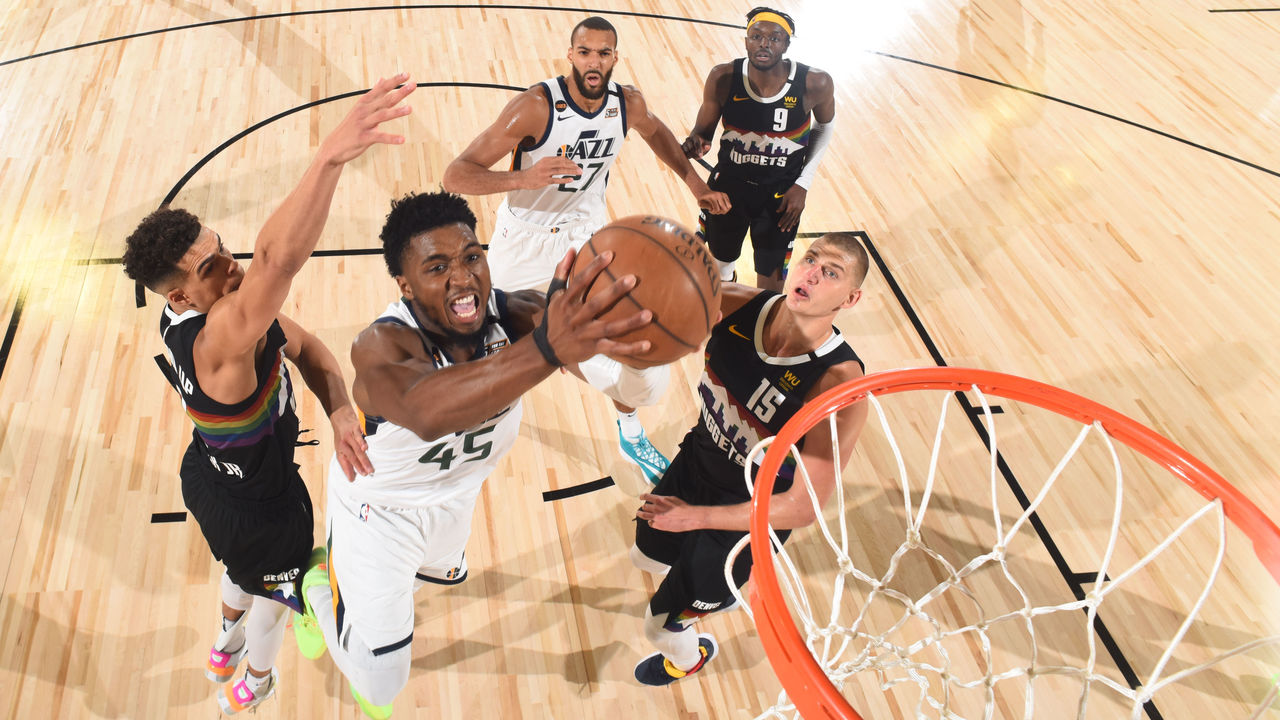
What we're definitely not going to do is take any credit away from Donovan Mitchell, who followed up the third-highest scoring playoff game in NBA history Monday with 30 points and eight assists on 10-of-14 shooting in a blowout win Wednesday.
Through two games of an even series against Denver, Mitchell has scored 87 points in 77 minutes on 62-55-100 shooting, and he's doing it in every conceivable way, whether it be attacking the rim, getting to the free-throw line, lighting it up from beyond the arc, or finding the soft spots in the Nuggets' defense in between.
Jordan Clarkson's shot-making, Rudy Gobert's screening and rim-running, and Joe Ingles' vision have all played their part in Utah's offensive onslaught so far, but Mitchell's dazzling play has been the key reason the Jazz have been able to thrive without the services of Bojan Bogdanovic and Mike Conley.
All that said, the Nuggets' defense is making it a helluva lot easier than it should be for Mitchell and that undermanned Jazz team, and that continues a concerning trend for Denver.
The promise of this Nuggets core is obviously tied to the offensive end, but after a top-10 finish in defensive efficiency last campaign, Denver entered the shutdown boasting the league's 12th-ranked defense this season. Despite what you may have assumed about the Nuggets' defensive personnel, this was a respectable, two-way team over the course of a fairly large sample size.
That has not been the case in the bubble so far. Denver posted the worst defensive rating among 22 teams in the seeding games and has now been lit up for 249 points in 101 playoff minutes against Utah.
A lot of that can be tied to the absences of Gary Harris and Will Barton - who serve as the team's best perimeter defenders - as well as the fact the Jazz are picking on rookie Michael Porter Jr. But there are other troubling signs, too. Nikola Jokic, whose physical transformation had us all wondering what "Skinny Jokic" could do in Orlando, somehow looks slower on the defensive end now than he did before the weight loss, and he's covering less ground. Paul Millsap looks like he's lost a step as well.
It's understandable the Nuggets would regress defensively, but they shouldn't be this bad, and they'll have to figure something out soon. Barton has left the bubble to rehab his bothersome knee, and Harris' timetable to return from a hip injury remains unknown, so it's not like Denver can count on reinforcements. The Jazz, meanwhile, could get Mike Conley back as soon as Friday's Game 3.
The Nuggets believe they have championship upside. If they defend the way they have over the last two games, they won't even get to explore their second-round upside.